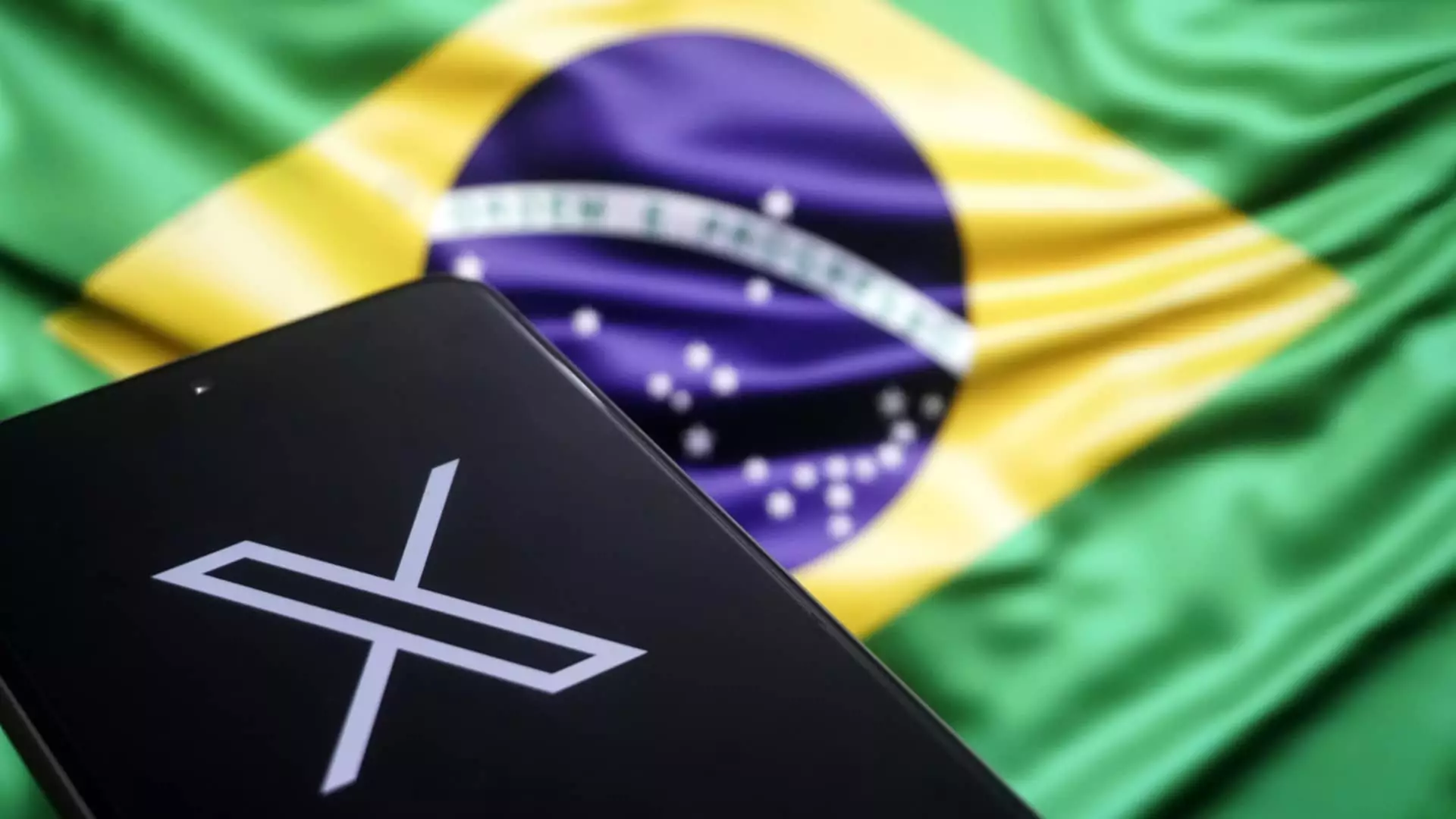Elon Musk’s social media platform, X, previously known as Twitter, experienced a significant setback in Brazil due to legal challenges initiated by Alexandre de Moraes, a minister of the country’s federal supreme court. The platform was suspended on August 31 as a result of Musk’s refusal to comply with court orders demanding the removal of certain user accounts and the elimination of content deemed illegal under Brazil’s stringent internet regulations. These laws are designed to combat the proliferation of hate speech, misinformation, and threats to democratic institutions. The court’s decision to effectively ban the use of X in Brazil was upheld by a panel of justices, showcasing the serious nature of the conflict between the platform and Brazilian legal authorities.
For months, Musk and his company resisted the requirements laid out by the court, opting instead for a confrontational approach. His dismissal of the Brazilian judiciary—comparing Moraes to the infamous fictional character Voldemort—illustrates a profound disregard for the legal framework governing digital platforms in Brazil. Moreover, Musk’s antics only exacerbated the situation, as he questioned the credibility of the judiciary, labeling it as a form of tyranny. This antagonism possibly jeopardized X’s reputation and operations in a market with a sizable user base.
As the standoff continued, mounting pressure from investors in Musk’s other business ventures may have influenced the decision to return to compliance with Brazilian laws. Fines threatened by the court added a sense of urgency to the negotiations. Eventually, it became untenable for X to ignore the legal ramifications, resulting in the suspension of business accounts in Brazil, including those tied to Musk’s Starlink service.
In a recent announcement, X proclaimed its reinstatement in Brazil, expressing commitment to uphold freedom of speech while adhering to the nation’s legal statutes. The platform’s leadership claimed to recognize the necessity of giving millions of Brazilians access to their services, thereby signaling a pivotal shift from resistance to compliance. With the return of X, the court confirmed that the disservice to Brazilian users had resulted from Musk’s initial non-compliance. The resolution of this standoff is critical not only for X but also for the broader context of internet governance within Brazil, where tech companies face stringent regulations designed to protect civil rights.
Throughout X’s suspension, rival platforms like Bluesky and Threads capitalized on its absence, significantly increasing their user bases in Brazil. The rapid adoption of these alternatives reflects an evolving digital landscape where user loyalty can shift swiftly in response to perceived neglect by established platforms. As X resumes its services, it must grapple with the potential long-term effects on its market share and reputation amidst emerging competition.
The saga of X’s re-entry into Brazil serves as a critical examination of the challenges tech companies face in complying with international laws while retaining their operational models. The situation underscores the delicate balance between freedom of expression and the responsibility that corporations bear towards legal jurisdictions—a principle that will undoubtedly shape future relations between technology and legislation across the globe.

